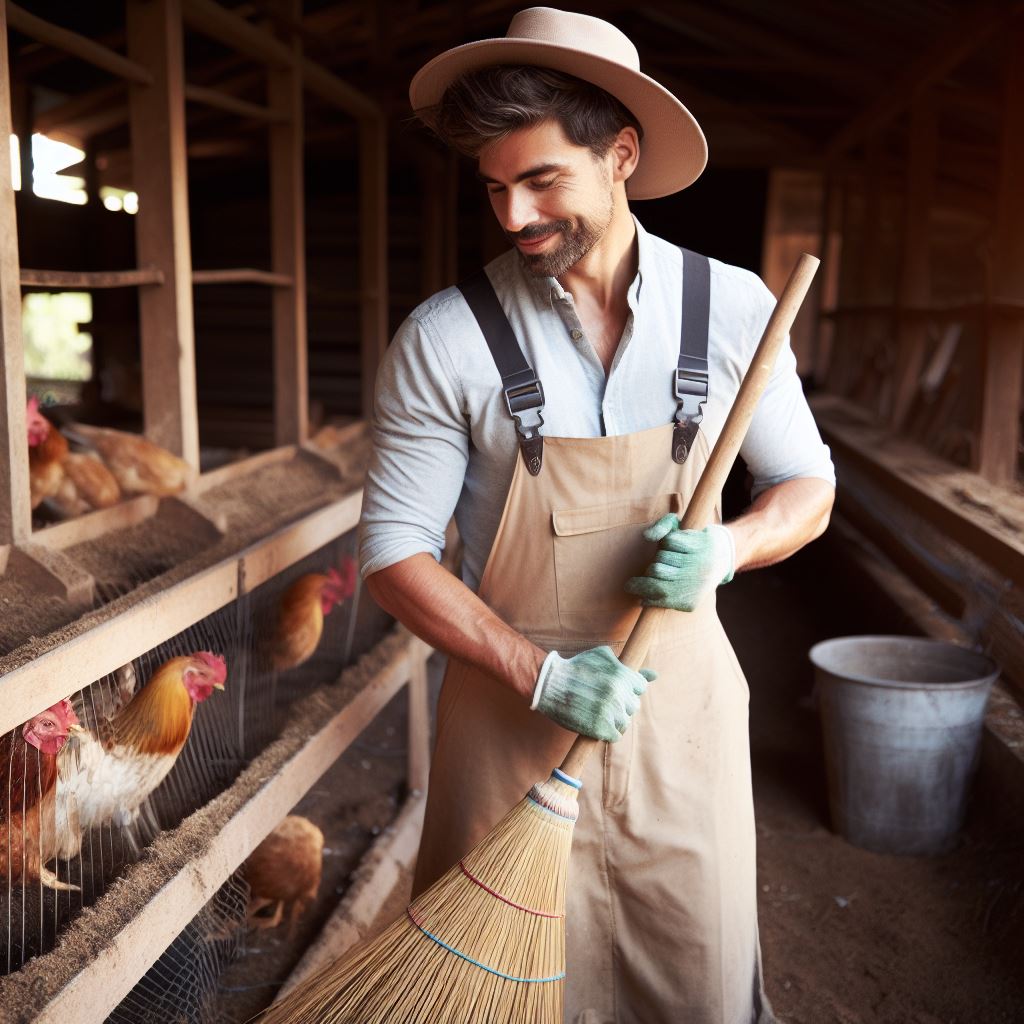Introduction
Boosting goat health involves a blend of proper nutrition and attentive care. Optimal health ensures their vitality and productivity.
Importance of Nutrition and Care
- Nutrition directly impacts a goat’s overall well-being.
- Attentive care prevents common health issues, fostering a robust and thriving goat herd.
Overview of the Blog Post
- Unveiling practical tips for boosting goat health through strategic nutrition and diligent care.
Understanding Goat Nutrition
Dietary Needs of Goats
- Goats require essential nutrients for optimal health.
- A balanced diet is important for meeting the nutritional needs of goats.
Differentiating Roughage and Concentrate Feed
Roughage and concentrate feed are two types of food that goats consume.
Suitable Roughage and Concentrate Feed Options for Goats
Here are some examples of suitable roughage and concentrate feed options for goats:
- Roughage feed options include hay, grass, browse, and silage.
- Concentrate feed options include grains, legumes, and commercially prepared feeds.
Dietary Needs of Goats
Goats require specific nutrients to maintain optimal health and well-being.
There are several essential nutrients that goats need in their diet:
- Protein is a crucial nutrient for goats, as it helps in muscle development and growth.
- Fiber is important for proper digestion and gut health in goats.
- Carbohydrates provide energy for goats to carry out their daily activities.
- Vitamins and minerals play a vital role in maintaining overall health and preventing deficiencies.
Providing goats with a balanced diet is essential for meeting their nutritional requirements.
A balanced diet includes a combination of roughage and concentrate feed.
Differentiating Roughage and Concentrate Feed
Roughage and concentrate feed are the two main types of food that goats consume.
Roughage refers to coarse feed materials that are high in fiber content.
It includes hay, grass, browse, and silage.
Roughage requires goats to chew and grind their food properly to aid in digestion.
On the other hand, concentrate feed is a more concentrated source of nutrients.
It is typically rich in protein, energy, and essential vitamins and minerals.
Concentrate feed options for goats can include grains, legumes, and commercially prepared feeds.
Suitable Roughage and Concentrate Feed Options for Goats
Here are some examples of suitable roughage and concentrate feed options for goats:
Transform Your Agribusiness
Unlock your farm's potential with expert advice tailored to your needs. Get actionable steps that drive real results.
Get StartedRoughage feed options
- High-quality hay: Timothy, Bermuda grass, alfalfa, and clover hay.
- Browse: Tree leaves, shrubs, and twigs consumed by goats while grazing.
- Grass: Fresh or dried grass from grazing pastures.
- Silage: Fermented crops such as corn, sorghum, or legumes, stored in airtight conditions.
Concentrate feed options
- Grains: Corn, barley, oats, and wheat.
- Legumes: Soybeans, lentils, peas, and chickpeas.
- Commercially prepared goat feeds: Balanced feeds specifically formulated for goats.
It is important to provide a variety of roughage and concentrate feed options to meet goats’ nutritional needs.
Regularly monitor the condition of goats and adjust their diet accordingly to ensure optimal health and well-being.
Remember to consult with a veterinarian or an animal nutritionist for specific dietary recommendations for your goats.
Read: Breeding Livestock: Basics for Farm Success
Feeding Practices for Healthy Goats
Establish a feeding routine and schedule
- Consistency is key when it comes to feeding goats.
- Set a specific feeding time and stick to it every day.
- Goats thrive on routine, so having a constant feeding schedule keeps them healthy.
- Make sure to feed them at the same time each morning and evening.
Proper portion sizes and feeding ratios
- Understanding the right portion sizes for your goats is crucial.
- Overfeeding can lead to obesity and related health issues.
- Consult with a veterinarian to determine the appropriate feeding ratios for your goats.
- Provide the right amount of feed for their age, weight, and activity level.
Highlighting the significance of clean drinking water availability
- Access to clean and fresh drinking water is vital for boosting goat health.
- Make sure to provide clean water at all times, especially during hot weather.
- Goats have higher water requirements compared to other livestock.
- Ensure water sources are easily accessible and regularly cleaned.
The use of mineral supplements for meeting nutritional requirements
- Mineral supplements play a crucial role in meeting goats’ nutritional needs.
- Goats need minerals such as calcium, phosphorus, selenium, and zinc.
- Consult with a veterinarian to determine the appropriate mineral supplement for your goats.
- Provide mineral blocks or supplements according to the recommended dosage for optimum health.
By following these feeding practices, you can ensure the health and well-being of your goats. A consistent feeding routine and schedule help them adjust and thrive.
Controlling portion sizes and feeding ratios prevent issues like obesity. Providing clean drinking water is essential for their hydration needs.
Lastly, supplementing their diet with minerals ensures they meet their nutritional requirements. Remember, a well-fed goat is a happy and healthy goat.
Read: Optimizing Feed for Livestock: Expert Advice
Promoting Good Digestive Health
The importance of a healthy digestive system for goats
Having a healthy digestive system is crucial for goats as it directly impacts their overall well-being.
The role of forage and fiber in promoting digestion
Forage and fiber play a vital role in promoting healthy digestion for goats. They provide essential nutrients and aid in proper rumen function.
Common digestive health issues and how to prevent them
Bloat
Bloat is a common digestive health issue in goats and can be prevented by implementing proper feeding management practices.
Diarrhea
Diarrhea can be caused by various factors, such as sudden diet changes or bacterial infections.
Maintaining a clean environment and providing fresh water can help prevent diarrhea.
Acidosis
Acidosis occurs when there is an imbalance in the rumen’s pH levels.
Avoiding excessive grain feeding and gradually introducing new feeds can help prevent acidosis.
Tips for maintaining optimal digestive health in goats
To maintain optimal digestive health in goats, follow these tips:
- Provide a balanced diet: Ensure that goats have access to high-quality forage and a proper balance of nutrients.
- Offer adequate fiber: Include fiber-rich forage such as hay or pasture to promote proper rumen function.
- Implement a gradual diet change: Avoid sudden changes in diet to prevent digestive disturbances.
- Provide clean water: Ensure goats have access to fresh and clean water at all times.
- Practice good feeding management: Avoid overfeeding and provide small, frequent meals to aid in digestion.
- Monitor for signs of digestive issues: Regularly check goats for signs of bloat, diarrhea, or acidosis, and address them promptly.
- Provide access to minerals and supplements: Ensure goats have access to mineral supplements to support proper digestion.
- Maintain a clean environment: Regularly clean the barn and remove soiled bedding to prevent the growth of harmful bacteria.
- Limit stress: Minimize stressful situations as stress can negatively impact goat digestion.
- Consult a veterinarian: If you notice persistent digestive issues or any abnormal symptoms, consult a veterinarian for proper diagnosis and treatment.
By following these tips, you can promote good digestive health in goats and help them live a long and healthy life.
Remember, a healthy digestive system is the key to boosting goat health!

Find Out More: Sustainable Rabbit Farming 101
See Related Content: Best Sheep Breeds for Small Farms in the US
Explore Further: Layer vs. Broiler: Choosing Your Poultry Path
Essential Care Practices
Importance of Regular Veterinary Check-ups
- Regular veterinary check-ups are crucial to ensure the overall health and well-being of goats.
- Veterinary professionals can identify and treat any potential health issues before they become serious.
- These check-ups allow for the monitoring of vital signs, weight, and general body condition.
- Veterinarians can provide guidance on nutrition, proper care, and answer any goat-related questions.
- Annual check-ups also include vaccines, deworming, and various preventive measures for diseases.
Necessity of Vaccination and Proper Deworming
- Vaccination is essential to protect goats from contagious and potentially life-threatening diseases.
- Consult with a veterinarian to determine the appropriate vaccines based on the goat’s age and location.
- Regular deworming is necessary to prevent internal parasites that can cause poor health and weight loss.
- Proper deworming schedule and medications should be discussed with a veterinary professional.
- Ensure all goats, especially pregnant ones, receive necessary vaccinations and deworming treatments.
Information on Hoof Care and Trimming
- Regular hoof care and trimming are vital aspects of goat health maintenance.
- Trimming hooves prevents overgrowth, deformities, discomfort, and potential infections.
- Consult with a veterinarian to learn the correct hoof trimming techniques and frequency for your goats.
- Proper trimming tools, such as hoof trimmers or files, should be used to avoid injury.
- Observe goats regularly for any signs of hoof problems such as limping, excessive wear, or cracks.
Significance of Clean and Well-maintained Living Areas for Goats
- Providing clean and well-maintained living areas is essential for the overall health of goats.
- Cleanliness helps prevent the spread of diseases and reduces the risk of infections within the herd.
- Regularly clean and remove manure, soiled bedding, and debris from the goat’s shelter and pasture.
- Proper ventilation is important in preventing respiratory issues, particularly in enclosed housing.
- Ensure goats have access to fresh water, and feed them a balanced diet suited to their specific nutritional needs.
These essential care practices are crucial to maintaining the health and well-being of goats.
Regular veterinary check-ups provide necessary guidance, preventive care, and early detection of any potential health problems.
Vaccinations and deworming protect goats from diseases, while proper hoof care ensures their comfort and mobility.
Showcase Your Farming Business
Publish your professional farming services profile on our blog for a one-time fee of $200 and reach a dedicated audience of farmers and agribusiness owners.
Publish Your ProfileLastly, maintaining a clean and well-maintained living area promotes a healthy environment, reducing the risk of infections and respiratory issues.
By implementing these practices, you can enhance the overall health and longevity of your goats.
Read: Winter Care for Livestock: A Complete Guide
Maintaining Goat Health in Different Seasons
The specific challenges posed by different seasons
- Cold weather considerations: Protect goats from frostbite, provide adequate shelter, and adjust feeding schedules.
- Hot weather considerations: Ensure access to shade, provide abundant water, and watch for heat stress.
Tips for helping goats adapt and remain healthy during extreme weather conditions
Extreme weather can be challenging for goats, but with proper care, their health can be maintained.
Cold Weather Tips
- Provide a warm, dry shelter with proper ventilation to protect goats from extreme cold.
- Use bedding such as straw or wood chips to insulate the floor and keep goats off frozen ground.
- Adjust feeding schedules to include more frequent meals and provide additional high-quality hay.
- Offer fresh, lukewarm water frequently to prevent dehydration.
- Check goats regularly for signs of frostbite, such as pale, swollen, or discolored areas.
- If frostbite occurs, apply warm water to the affected areas and seek veterinary assistance if necessary.
Hot Weather Tips
- Ensure goats have access to shaded areas, either natural or man-made, throughout the day.
- Provide ample fresh water in clean containers, and consider using automatic waterers.
- Install fans or misting systems in the barn to help cool down goat’s environment.
- Avoid feeding goats during the hottest part of the day to decrease heat production in their bodies.
- Monitor goats for signs of heat stress, including heavy panting, drooling, and weakness.
- If heat stress is observed, move the goat to a cooler area and offer them cool water to drink.
By understanding and addressing the challenges of different seasons, goat owners can ensure the well-being and health of their goats throughout the year.
Read: Sustainable Grazing: Balancing Land & Livestock
Conclusion
In this blog post, we discussed various nutrition and care tips for boosting goat health.
It is important to prioritize nutrition and care to ensure optimal health for goats.
We encourage readers to apply the provided tips and techniques to promote the health of their goats.




